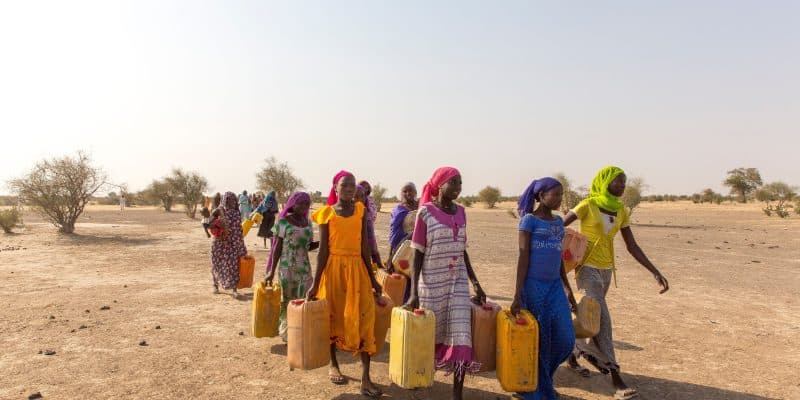The extreme drought that has been affecting the Horn of Africa since 2020 has not finished spreading its human consequences. In a report published on 15 July 2023, the United Nations Population Fund (UNFPA) states that more than 43 million people are in need of humanitarian aid and 2.7 million others have been displaced in Ethiopia, Kenya and Somalia as a result of the drought affecting these countries in the Horn of Africa.
This is the latest report on the relentless drought in the Horn of Africa, more specifically in Ethiopia, Kenya and Somalia. The study published on 15 July 2023 by the United Nations Population Fund (UNFPA) reveals that more than 2.7 million people have been displaced in the three countries and more than 13 million head of livestock have died, destroying not only livelihoods but an entire way of life.
The UNFPA adds that of the “43 million people in need of humanitarian assistance in these three countries of the Horn of Africa, 32 million are acutely food insecure”. The same source also points out that recent rains in other parts of the Horn of Africa have led to “further population displacement and increased risks of disease, livestock losses and crop damage”.
A phenomenon caused by climate change
In another study published on 27 April 2023, scientists described the historic drought affecting the Greater Horn of Africa (Ethiopia, Eritrea, Somalia, Djibouti, Kenya and Sudan) as the unprecedented combination of a lack of rain and high temperatures. These climatic upsets could not have occurred without the consequences of human emissions of greenhouse gases.
Read also-Drought, food crisis… Time for action, says Mohamed Bazoum
“Climate change caused by human activities has made agricultural drought in the Horn of Africa around 100 times more likely than in the past”, states a report by the World Weather Attribution (WWA), a global network of scientists that assesses the link between extreme weather events and climate disruption without delay.
According to the nineteen scientists who contributed to the report, climate change has had “little effect on recent annual rainfall” in the region. But it has had a strong influence on the rise in temperatures, responsible for a sharp increase in evapotranspiration, which has led to record drying of soils and plants. For these scientists, this is the worst drought to hit the region for forty years.
Boris Ngounou







